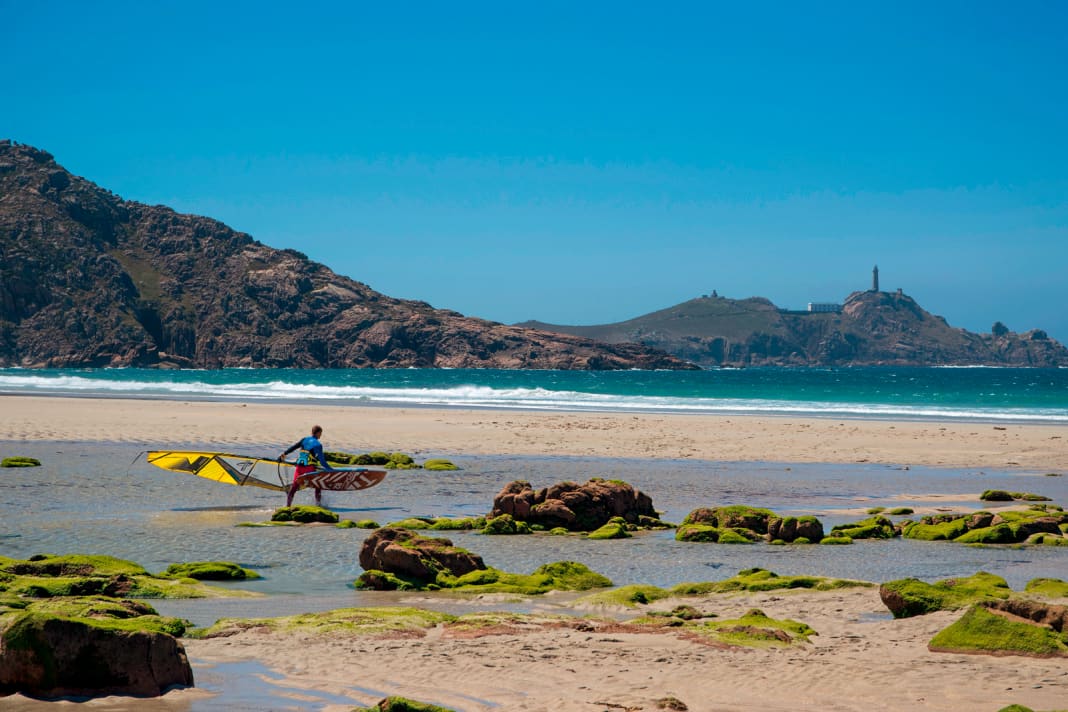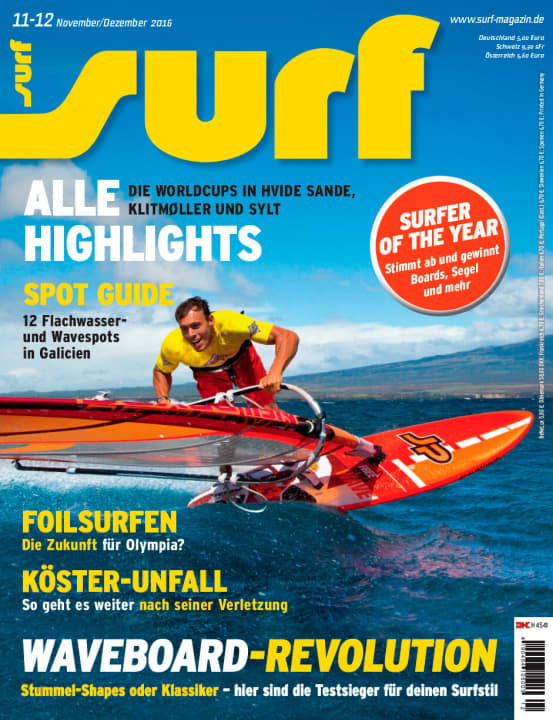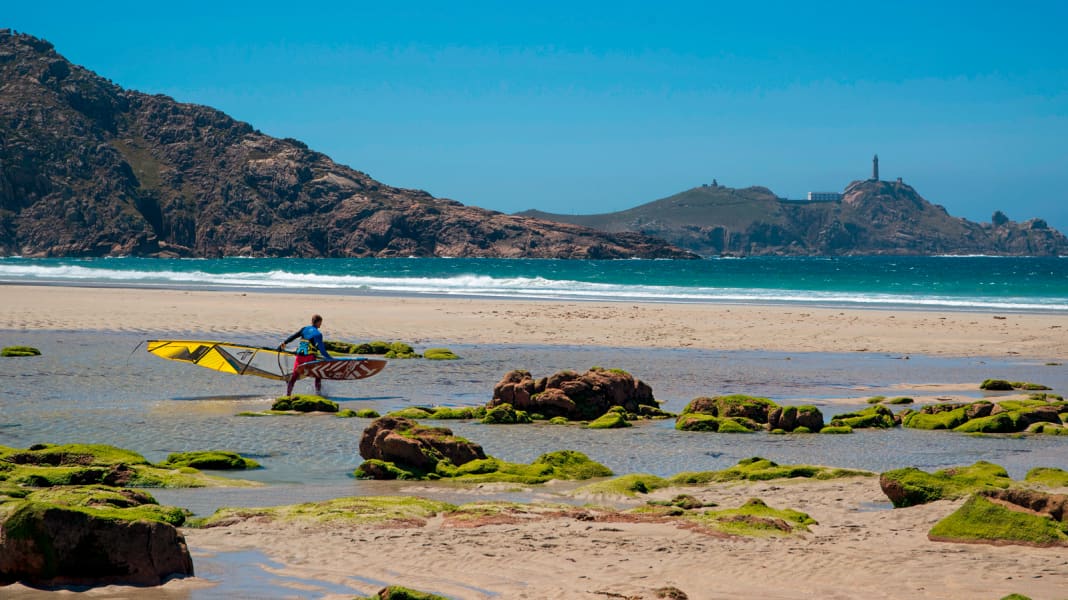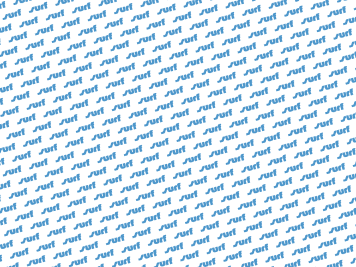The life of a windsurfing pro definitely has very pleasant aspects. You get to travel to the most beautiful places in the world and spend most of the day on the water. To be honest, there are of course one or two downsides. Dragging 100-kilo board bags around the world doesn't put you in a good mood, especially when your often rather meagre pay cheque goes on paying for excess baggage. However, you can somehow come to terms with this over time; it would be inappropriate to complain. There is only one situation that still feels anything but good and that is losing. You come away empty-handed in terms of prize money, slip down a few places in the world rankings and all the hard work and training sessions seem to have been for nothing.
So, shortly after losing my heat, I'm sitting in my hotel room in Tenerife, disappointed and thinking about what I could have done better, when suddenly this "ping" of a newly received email sounds from the speakers of my laptop. In the subject line, I read the words "Last Minute Galicia?" written by French photographer Pierre Bouras, who keeps it short. "Congratulations on leaving early, so maybe you'll make it to Galicia with me in time tomorrow. There's a decent swell coming in over the next few days. Camille (Juban) has also just been eliminated from the competition and is probably more motivated than ever to ride a few clean waves with good friends."
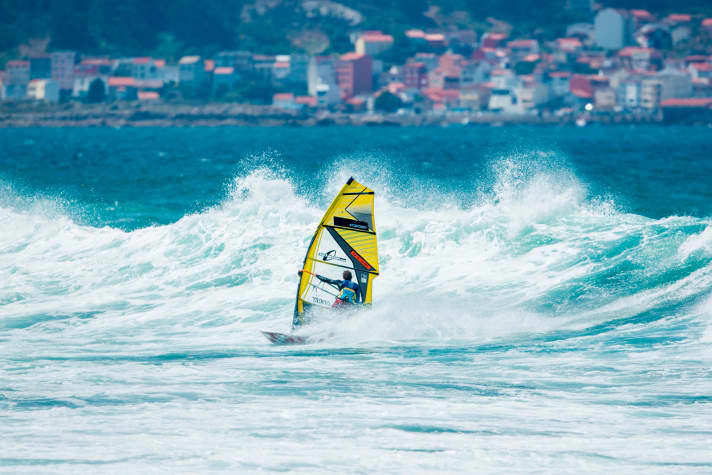
The next morning, I'm sitting next to Camille on a packed plane on the way to the famous pilgrimage site of Santiago de Compostela. We're in high spirits - partly because we've checked in our six oversized surf bags with a brilliant display of charm and negotiating skills, and partly because there's no better therapy after a botched contest than riding a few waves away from the judges. Having travelled here before, we are more than aware of the windsurfing qualities of this corner of north-western Spain. Within a manageable radius, Galicia offers suitable spots for all skill levels - from freeriders to wave pros - and impresses with its rugged rocky coastline and secluded beaches, which are supplied with plenty of waves by Atlantic lows. The best way to explore this remote coastal area is in a well-equipped campervan. Hotels or flats are few and far between, apart from a few beaches that have been developed for tourism. It is the perfect place to relax and unwind.
The entire travel report with descriptions of these spots is available as a PDF in the download area below:
